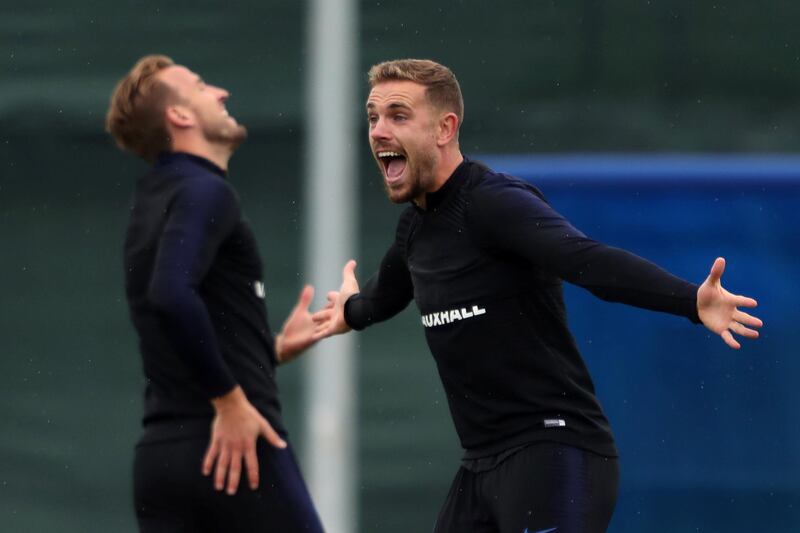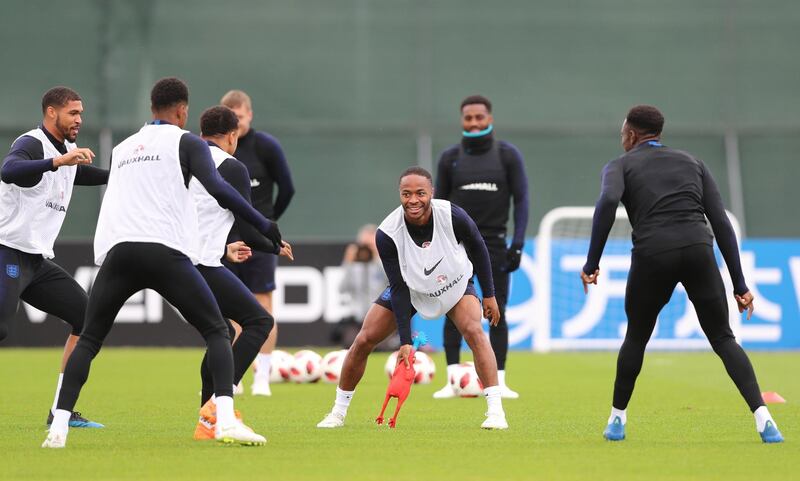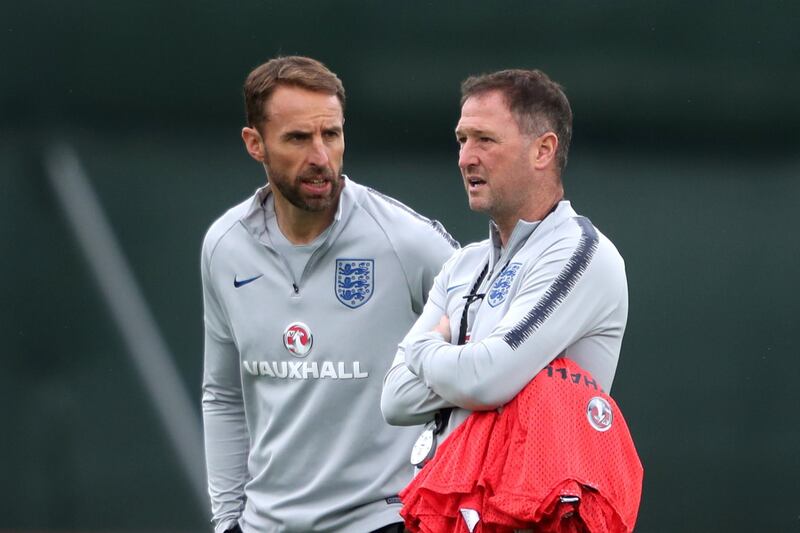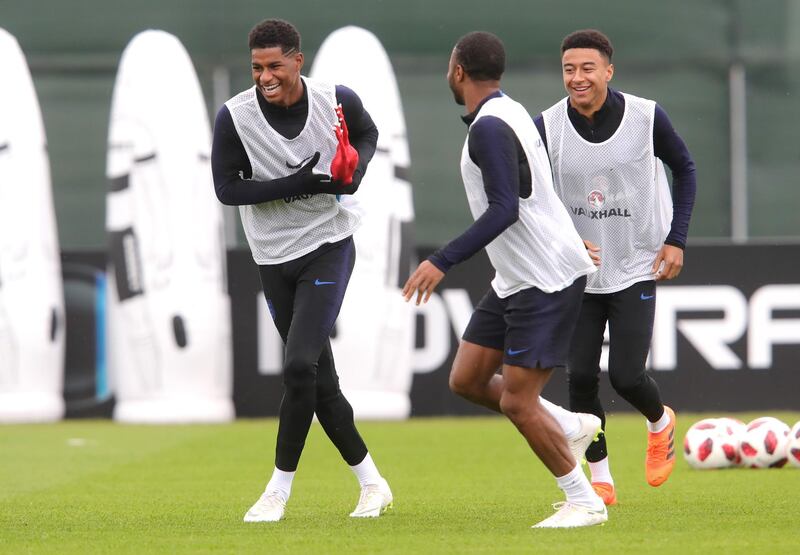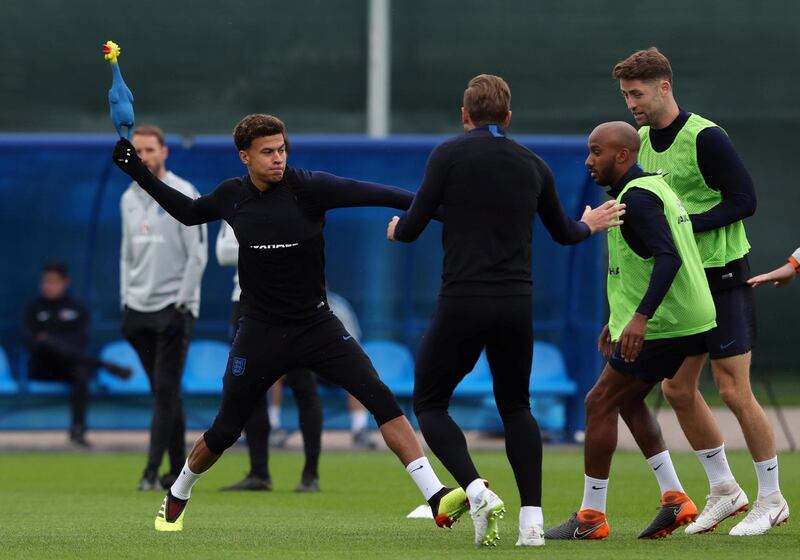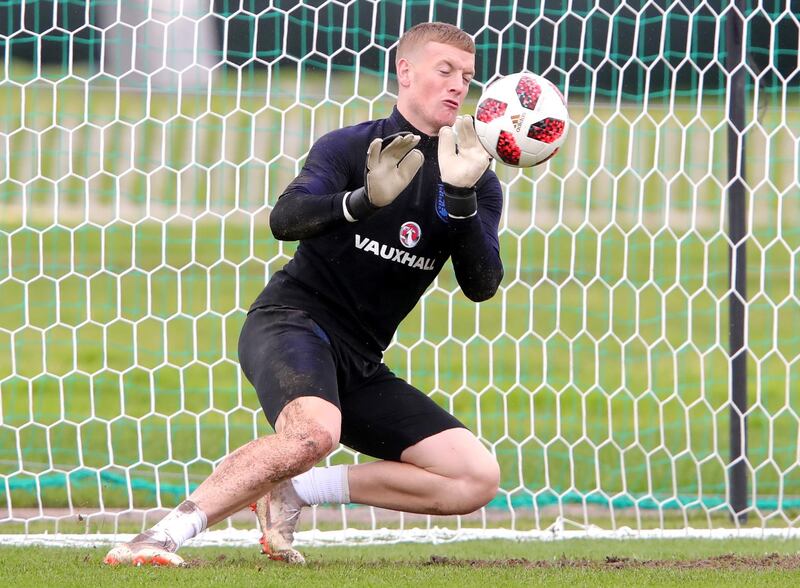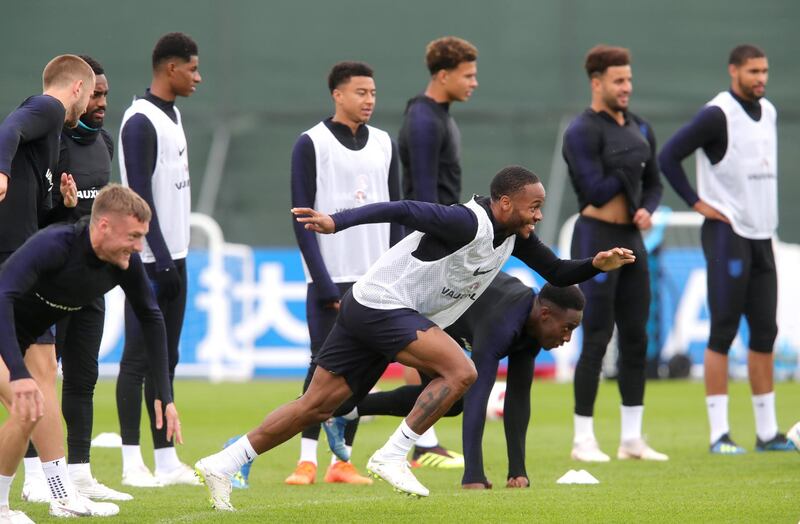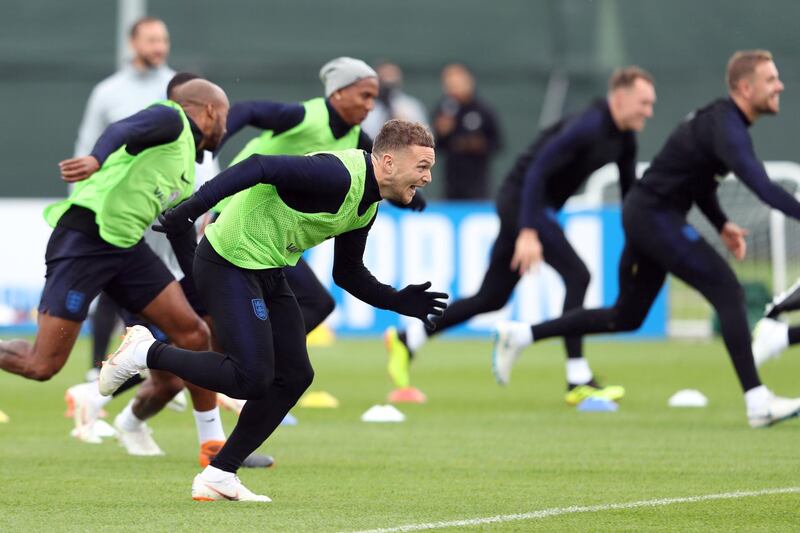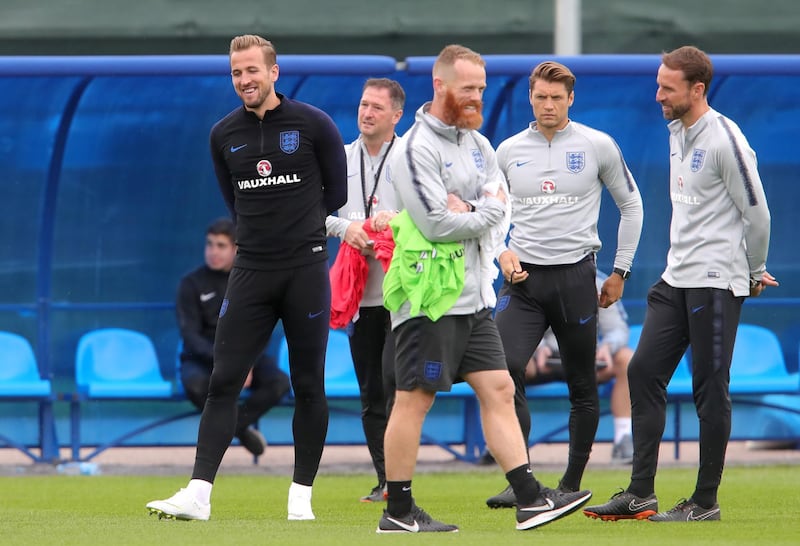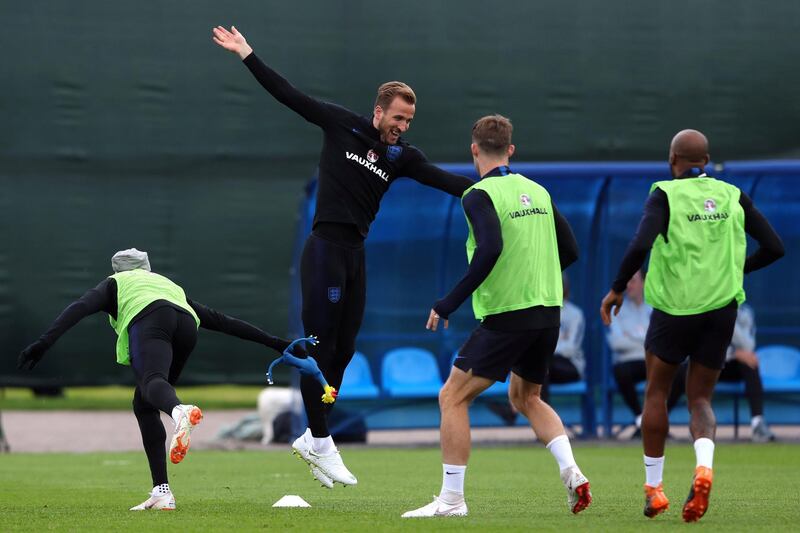Chris Waddle reflected ruefully in an interview this week that he was the last English player to kick the ball in a World Cup semi-final. That kick in question, as few England fans need reminding, sailed over the crossbar. It proved the last penalty in the 1990 shoot-out. It sent West Germany to the final.
In the same way, Gareth Southgate was the last England footballer to touch the ball in the semi-final of a major tournament. His rather tame spot kick was blocked by Andreas Kopke. It was Euro 96 and another German team advanced to a final at England’s expense.
For 22 years, it felt defining, the moment that overshadowed the other achievements in an admirable career. "I was the person who had ended a nation's dream," Southgate wrote in Woody And Nord. "I knew this would be a major issue for the rest of my life."
So it has proved, and yet the first line of his eventual obituary requires rewriting. The circle of footballing life is almost complete. Southgate erred in a semi-final – albeit one where he had actually excelled in his job as a defender – but has led England to their first since then. He has restored a feelgood factor that has been missing for much of the time since those heady days of Euro 96. That there is the same soundtrack, with the constant choruses of "football's coming home" and Three Lions back at No 1 in the charts, has added to the sense that history is repeating itself, but with a difference. The fall-guy has become the unlikely national hero. The 2018 World Cup seems Southgate's redemption song.
England v Germany in Euro 96
There is a legitimate debate to be had about quite how good a manager he is – can he, for instance, construct an alternative to his excellent 3-3-2-2 formation if it leaves Jordan Henderson exposed and outnumbered by Croatia in midfield? Can he make a game-changing substitution? – but he has been an outstanding leader. He has constructed a team in his own image; Jordan Pickford, Harry Maguire, Kieran Trippier and Jesse Lingard, all unlikely starters 12 months ago, have mirrored his own swift journey from unpromising beginnings to tournament talisman.
Too many England sides were unlovable. Southgate’s fundamental decency was underlined when he sympathised with Mateus Uribe, the Colombian who hit the bar from 12 yards, just as Jurgen Klinsmann consoled him 22 years earlier. That penalty shoot-out win was cathartic. So, in its own way, has been the whole tournament.
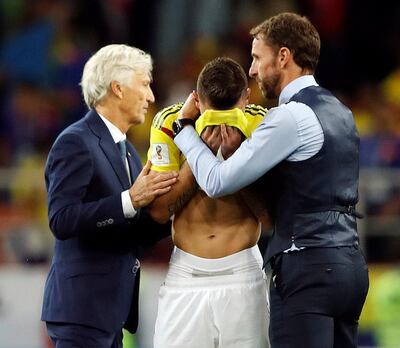
The time scale has lent an epic element to Southgate’s personal narrative. The intervening two decades contained a sense of helplessness, as he watched Paul Ince and David Batty miss their penalties against Argentina in 1998, and anti-climax, as he did not take the field in either of his last two tournaments, in 2000 and 2002. While Chelsea and Lazio showed interested in him, he was denied the major move that would have allowed him to compete for the biggest honours. Politeness and professionalism camouflaged it, but privately he felt unfulfilled.
Management began with a cost-cutting exercise at Middlesbrough that culminated in relegation. The wilderness years followed. Jamie Carragher recalled being on a punditry panel with Roy Keane and Southgate during Euro 2012. The Manchester United and Liverpool greats were assailed with questions about their managerial ambitions. No one, Carragher suggested, asked about Southgate’s.
_________________
Read more:
2018 World Cup live updates: buildup to France v Belgium semi-final
Extra Time podcast: World Cup semi-final predictions
Eric Dier: Euro 2016 failure helped shape England's World Cup run
Davor Suker: Luka Modric is the 'leader' Croatia need to reach the World Cup final
Croatia captain Luka Modric sets sights on 'special' World Cup semi-final with England
John McAuley: Vedran Corluka wants a repeat of Croatia's 2007 heroics against England in World Cup semi-final
_________________
The implausibility of an underestimated man’s renaissance has been one of the endearing elements. England were the team who over-promised and under-delivered. Southgate’s England have been the opposite. He has been the antithesis of Sven-Goran Eriksson and, in particular, Fabio Capello, the expensively-imported Serie A-winning managers, galvanising a team and, by extension, a country with a combination of thoughtfulness, planning, fairness and commitment. Too few of his predecessors, including the homegrown, understood English football, its strengths and weaknesses, its potential and problems, and English footballers in a way Southgate has. Empathy can come from character, but also from context and Euro 96 has provided the backdrop to the 2018 World Cup.
England’s least qualified manager since Walter Winterbottom, in terms of club management, has proved their most successful since Terry Venables and Bobby Robson, the semi-finalists of the 1990s. Southgate could yet surpass either. But he has already proved England’s improbable hero.
